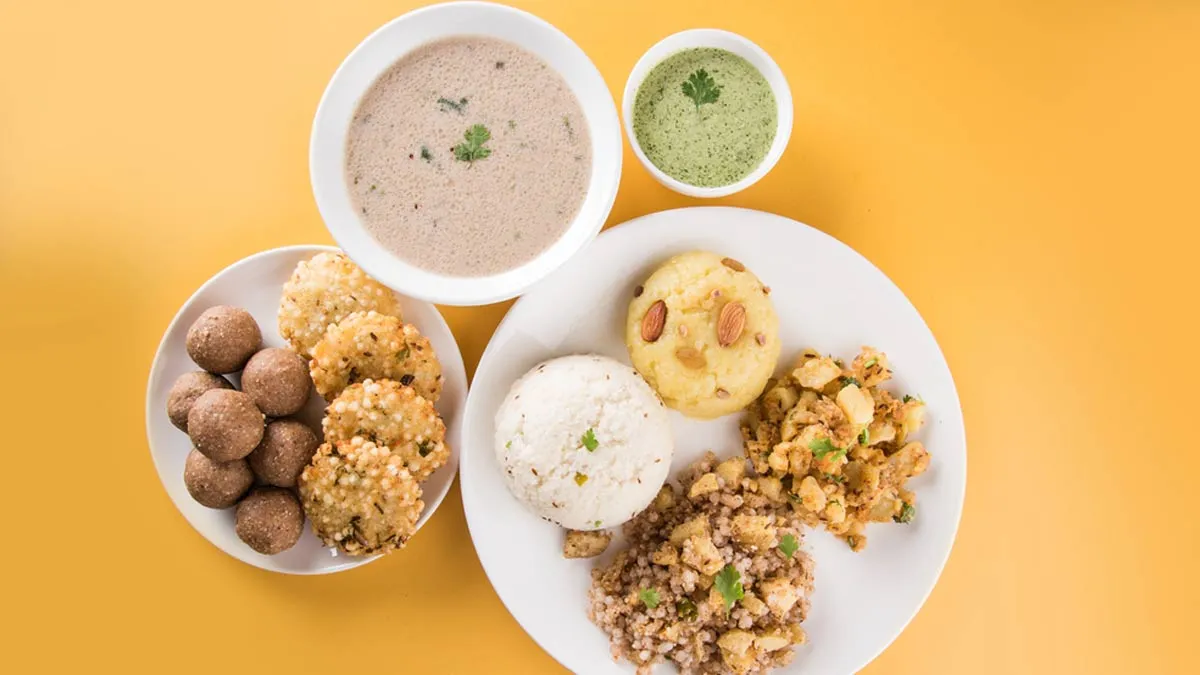
Mahashivratri, one of the most revered Hindu festivals, is a day of deep spiritual significance, observed through fasting, meditation, and devotion to Lord Shiva. Fasting on Mahashivratri is believed to purify the body, enhance spiritual awareness, and instill discipline. However, to ensure the fast does not take a toll on your health, it is essential to follow certain dietary rules. Here’s a comprehensive guide on the do’s and don’ts of Mahashivratri fasting, along with scientific insights on how to keep your stomach happy during the fast.
Table of Content:-
The Spiritual and Scientific Significance of Fasting
Fasting on Mahashivratri is not just a religious custom but also holds scientific merit. Studies suggest that intermittent fasting can have various health benefits, including improved metabolism and detoxification. A 2021 study published in Cell Metabolism found that fasting enhances gut health, reduces inflammation, and promotes longevity. Moreover, fasting has been linked to enhanced mental clarity, which aligns with the spiritual aspect of Mahashivratri.
Do’s of Mahashivratri Fasting

1. Stay Hydrated
One of the most crucial aspects of fasting is hydration. You may consume water, coconut water, herbal teas, and milk to maintain electrolyte balance. A study in the Journal of Nutrition (2022) highlighted that dehydration during fasting can lead to headaches, fatigue, and dizziness, which can be prevented with adequate fluid intake.
2. Choose Satvic Foods
Satvic foods are light, easy to digest, and promote a sense of calmness. Some permissible foods include:
- Fruits such as bananas, apples, and pomegranates
- Nuts like almonds, walnuts, and raisins
- Dairy products such as milk, curd, and paneer
- Sabudana (tapioca pearls) and kuttu (buckwheat) flour preparations
Also read: Can Fasting Twice A Week Be The Key To Living Longer? Here's What You Should Know
3. Eat Energy-Boosting Foods
Since Mahashivratri fasting often lasts the entire day, consuming energy-sustaining foods is beneficial. Foods rich in healthy fats, such as nuts and seeds, provide long-lasting energy without causing bloating. A study published in The American Journal of Clinical Nutrition (2020) found that moderate fat consumption during fasting improves endurance and prevents lethargy.
4. Practise Mindful Eating
When breaking the fast, do so gradually. Start with a light meal such as fruits or nuts before consuming heavier foods. Overeating immediately after fasting can lead to digestive discomfort and bloating.
Don’ts of Mahashivratri Fasting

1. Avoid Deep-Fried and Processed Foods
While it may be tempting to indulge in deep-fried fasting snacks, excessive oil consumption can lead to acidity and indigestion. Fried foods slow down digestion and can make you feel sluggish rather than energetic.
2. Say No to Caffeinated Beverages
Tea and coffee can cause dehydration and acidity when consumed on an empty stomach. Herbal teas, such as tulsi or chamomile, are better alternatives as they soothe the digestive system.
3. Avoid Overeating
Since fasting lowers metabolism, eating large quantities in one go can put stress on the stomach. Instead of having one heavy meal, opt for small, frequent meals to maintain energy levels.
4. Do Not Ignore Warning Signs
If you experience dizziness, nausea, or severe weakness, break the fast with a light, nutritious meal. Fasting should be done in moderation and should not compromise health.
Also read: Healthy 2025: Top 7 Healthy Diets You Must Try This Year
The Secret to Keeping Your Stomach Happy
The key to a smooth fasting experience lies in maintaining gut health. Here are some tips:
- Consume Probiotics: Curd and buttermilk contain good bacteria that aid digestion.
- Eat Fibre-Rich Fruits: Bananas and papayas prevent acidity and constipation.
- Drink Lemon Water: It keeps the stomach alkaline and reduces bloating.
- Practise Breathing Exercises: Deep breathing or meditation can help maintain energy levels and prevent stress-related digestive issues.
Conclusion
Mahashivratri fasting, when done mindfully, offers both spiritual and health benefits. By following the right dietary practices and avoiding common mistakes, you can make the most of this sacred day while keeping your stomach happy. Whether you are fasting for religious reasons or to reap health benefits, listen to your body, stay hydrated, and nourish yourself with wholesome foods.
Also watch this video
Read Next
Struggling With Frequent Illnesses? Warm Up With THESE Healing Teas For All Your Winter Maladies
How we keep this article up to date:
We work with experts and keep a close eye on the latest in health and wellness. Whenever there is a new research or helpful information, we update our articles with accurate and useful advice.
Current Version